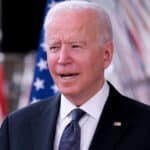During a recent speech at a journalism convention, Donald Trump provoked discussion about Vice President Kamala Harris's racial heritage by pointing out the inconsistencies in how she has advertised herself over her political career.
The National Association of Black Journalists Convention in Chicago became the venue for a controversial discussion when former President Donald Trump was asked about the reasons behind Kamala Harris's selection as Vice President on the Democratic ticket.
The question posed to Trump focused on whether Harris was chosen because she is a black woman.
Breitbart reported that Trump's response brought attention to Harris's heritage. He referenced her Indian background and her later identification with being black. This sparked a series of comments and reactions from those present at the event.
Trump's attack hit a sore point as Harris's main strategy revolves around her claims of being African-American, despite previously advertising herself as Indian in past elections.
During his speech, which took place on Wednesday, Trump elaborated on his views regarding Harris's identity. He stated, "Well, I can say no. I think it’s maybe a little bit different. I’ve known her a long time indirectly — not directly very much — and she was always of Indian heritage."
He further questioned the timing of her racial identification change: "I didn’t know she was black until a number of years ago when she happened to turn black, and now she wants to be known as black. So, I don’t know, is she Indian, or is she black?"
ABC News journalist Rachel Scott challenged Trump's remarks at the convention. Scott highlighted Harris's consistent self-identification: "She has always identified as a black woman from a historically black college."
No surprise to see ABC News going to bat for a Democrat candidate but Trump was indeed correct in pointing out that Harris had identified as Indian up until recent years when she suddenly began emphasizing her claim to African-American heritage.
The conversation at the NABJC raised broader questions about racial identity in the political sphere, particularly regarding how public figures are perceived and how they self-identify.
Trump added, "I respect either one, but she obviously doesn’t. Because she was Indian all the way, and, then, all of a sudden, she made a turn, and she became a black person." These comments added layers to the ongoing discussion about identity politics.
The implications of Trump’s statements at the National Association of Black Journalists Convention sparked a variety of responses from the public and media commentators alike.
The discourse surrounding racial identity, especially in the context of political figures, continues to be a potent topic for debate, reflecting the complex nature of race and heritage in America.
In summary, the dialogue initiated by Donald Trump’s comments at the journalism convention not only highlighted his perception of Kamala Harris's racial identity but also prompted a discussion on the authenticity and political strategy behind racial identification in politics.
The event has stirred conversations across various platforms, underlining the sensitivity and significance of race in political representation and public perception.



